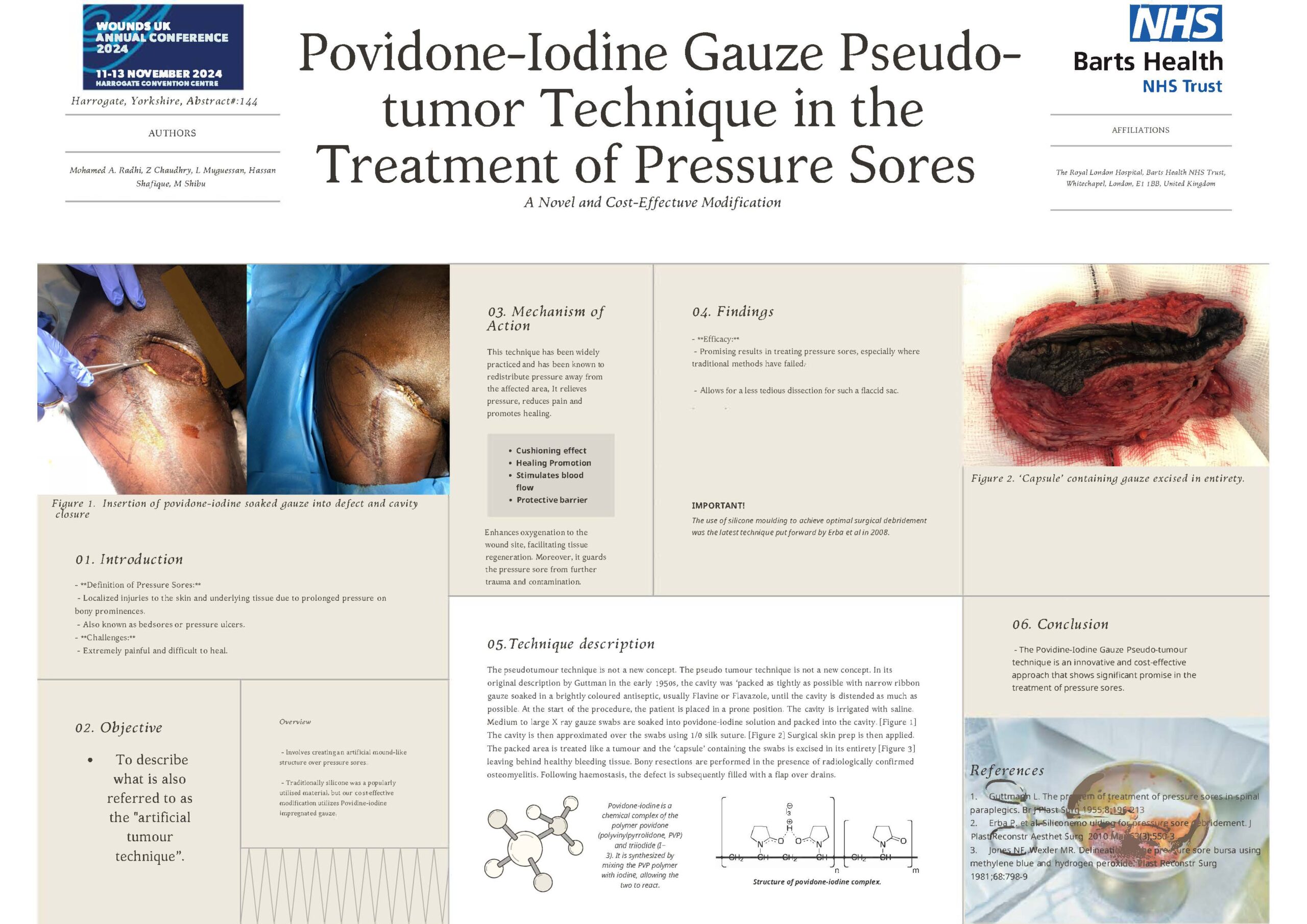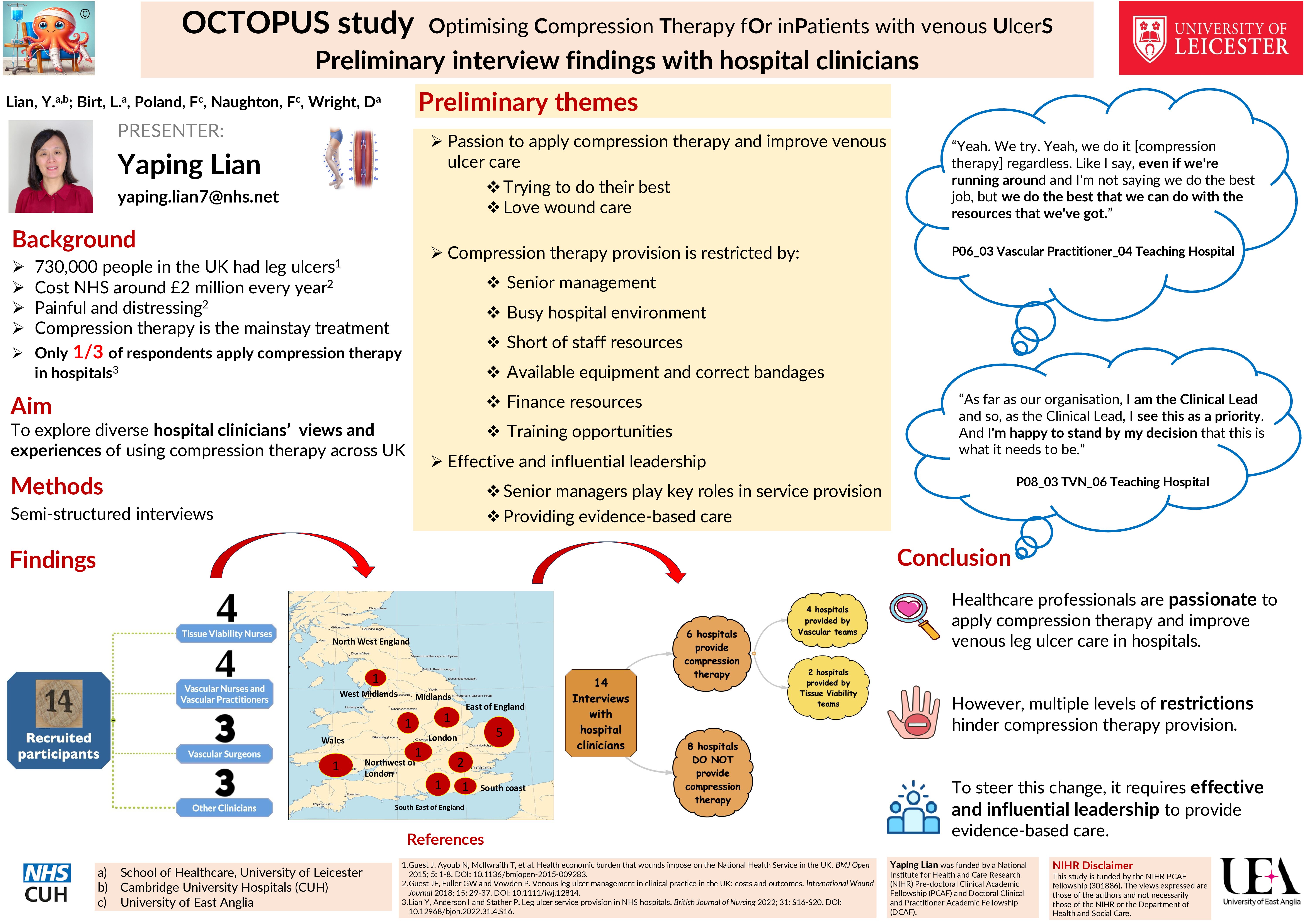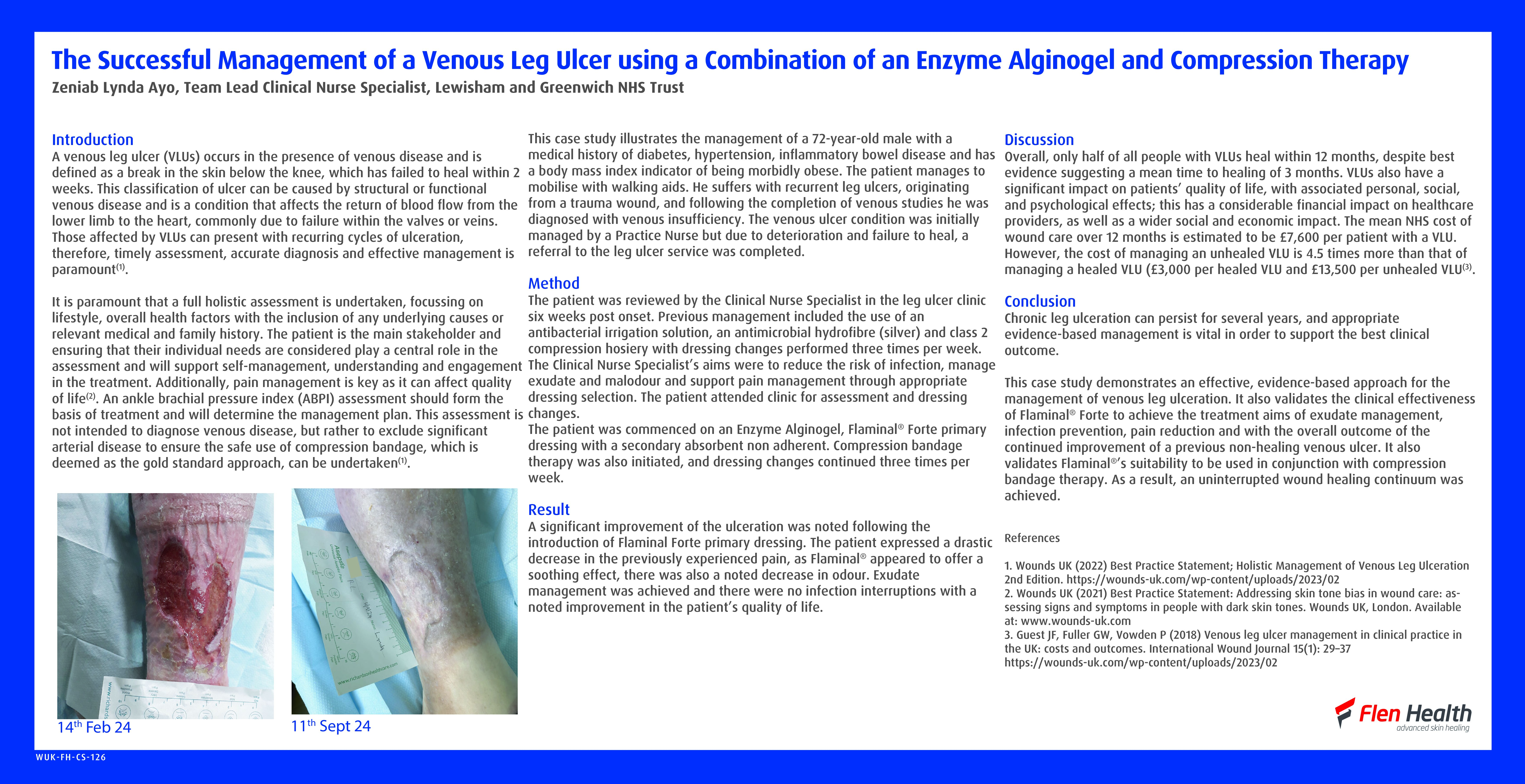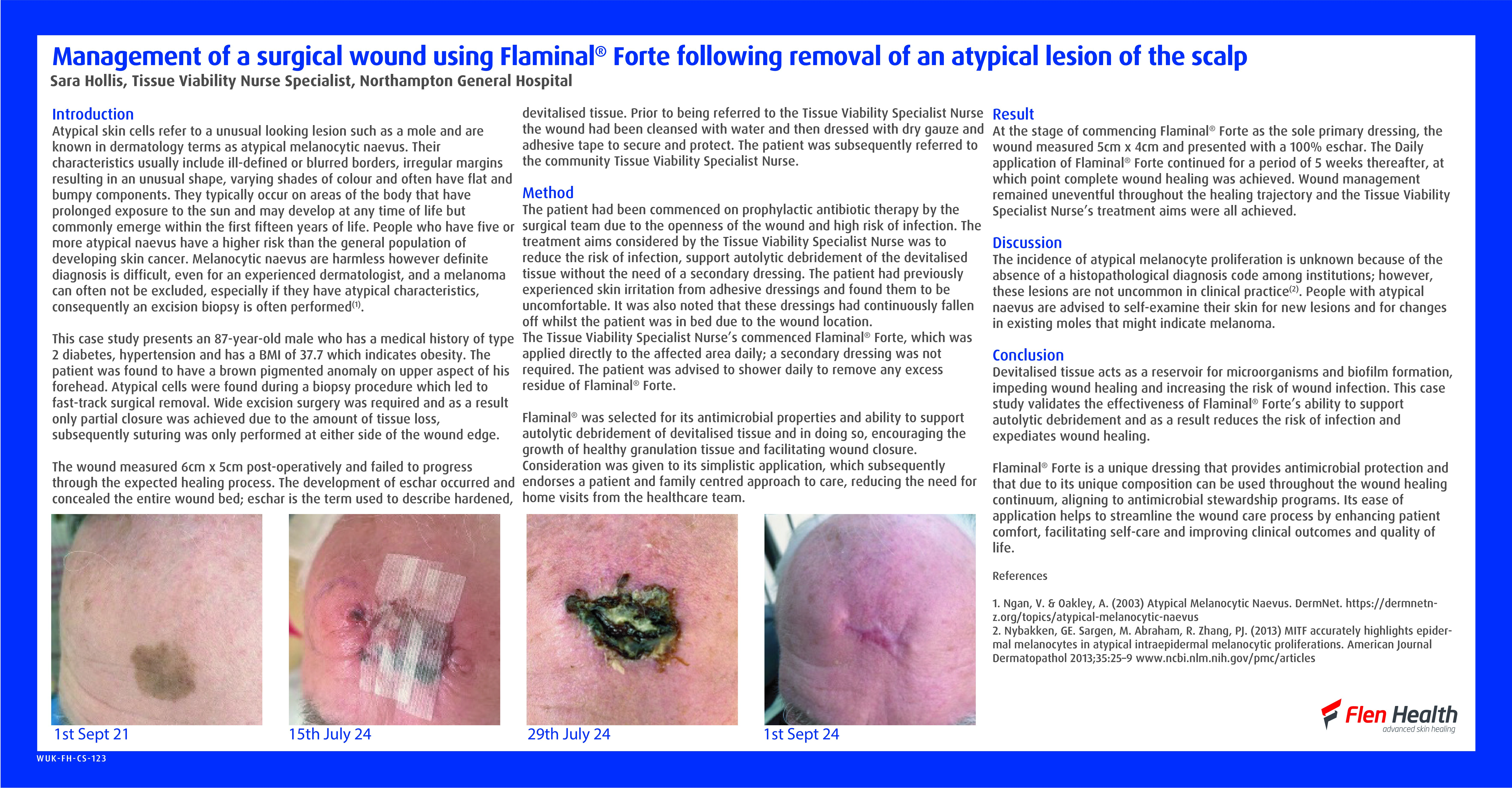The results of the Early Venous Reflux Ablation (EVRA) trial
The results of the Early Venous Reflux Ablation (EVRA) trial were presented last month in London (Gohel et al, 2018). The world of venous leg ulcer (VLU) management has finally gained significant Level 1 evidence with the potential to change future practice. EVRA’s primary outcome was to research the effects of venous intervention on ulcer healing. The main conclusions were that early venous ablation of superficial venous reflux resulted in faster healing of venous leg ulcers, increased time free from ulceration and in addition, significant cost savings. These are important outcomes for patients, healthcare professionals and commissioners.
The EVRA trial was a non-commercial study conducted in 20 NHS centres across the UK. It randomised 450 patients with active venous ulceration of less than six months duration to two groups; the first to receive therapeutic compression therapy and early endovenous intervention within two weeks of randomisation and the other group to receive compression alone. They received deferred venous ablation once healed. The high-quality data produced from the trial clearly demonstrates that receiving early endovenous intervention outperforms conservative management and deferred treatment, with regards to healing times. Read more in Alan Elstone’s guest editorial in the next issue of Wounds UK.







